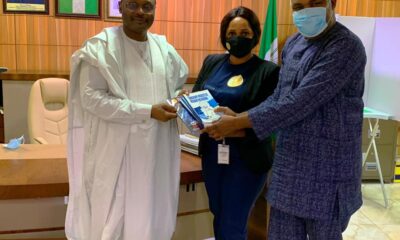Nigeria
Nigerian arraigned by US for $6 million fraud
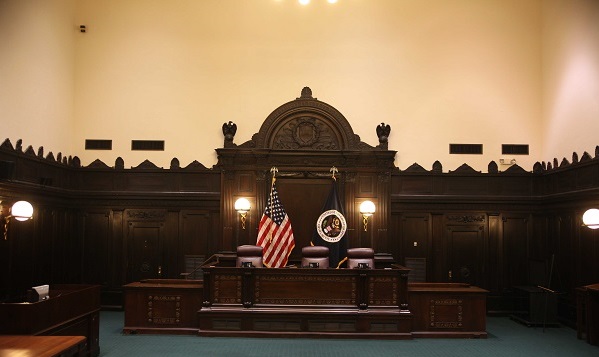
A district court in Florida has charged Nigerian national Okezie Ogbata with defrauding around 400 individuals, amounting to $6 million.
Ogbata operated a transnational inheritance fraud scheme targeting elderly U.S. citizens.
According to the Department of Justice, the 36-year-old and his accomplices convinced victims to send money for taxes and other fees to evade government officials.
They sent letters claiming to be representatives of a Spanish bank, stating that the recipients were entitled to a multimillion-dollar inheritance from a deceased family member.
Ogbata pleaded guilty to defrauding over 400 people and has profited approximately $6 million.
He is set to be sentenced on April 14, 2025, and could face more than 20 years in prison.
General Brian Boynton, head of the Justice Department’s Civil Division, emphasized the importance of international collaboration in addressing transnational crime.

News
HURIWA decries Appeal Court’s rejection of environmental pollution as a human right abuse
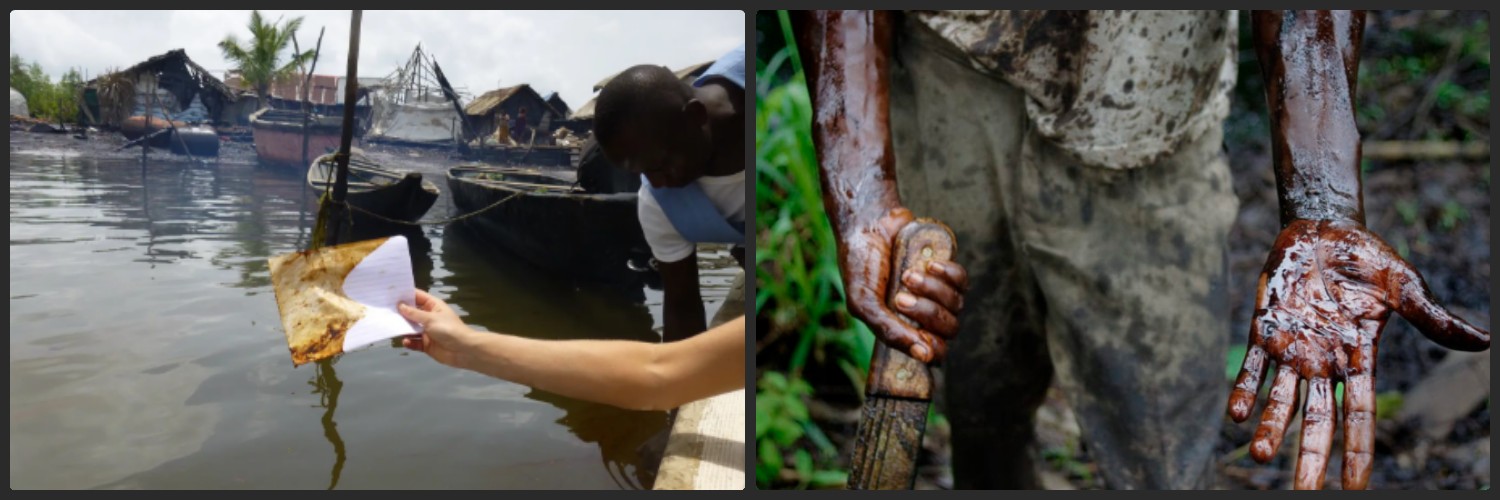
Prominent pro-democracy and civil rights advocacy group: HUMAN RIGHTS WRITERS ASSOCIATION OF NIGERIA (HURIWA) has disagreed with the ruling at the weekend by the Court of Appeal that failure of government to take measures to stop environmental pollution is a human right violation even as HURIWA said environmental damage caused by pollution impedes the enjoyment of the constitutionally guaranteed fundamental human rights and therefore amounts to a human right abuse. The Rights group said in virtually all legal jurisprudence, environmental pollution left untreated by government constitutes gross human rights violations.
HURIWA recalled that the Court of Appeal in Abuja, last Friday, prohibited the National Human Rights Commission (NHRC) from constituting a Special Panel of Investigation to entertain or determine complaints regarding alleged oil spillages and oil pollution in Nigeria.
This perpetual prohibition order was issued in a judgment delivered by Justice Okong Abang of the Court of Appeal, who upheld the appeal filed by the Nigerian National Petroleum Company (NNPC)’s lawyer, Olurotimi Aju Esq., against the NHRC.
The case was marked CA/A/864/2018.
The appellant, dissatisfied with the decision of the Federal High Court, Abuja Division—delivered by Justice Binta Nyako on March 23, 2018, which had affirmed NHRC’s powers to investigate and issue orders regarding oil spillage complaints—sought a reversal.
HURIWA recalled that the appellant approached the Court of Appeal, urging it to allow the appeal and set aside the judgment of the court below, made on March 23, 2018.
The lawyer asked the Court of Appeal to affirm its originating summons, which sought, among other things, the following:
“ORDERS OF PROHIBITION AND PERPETUAL INJUNCTION prohibiting and restraining the Special Panel of Investigation constituted by the Respondent from enquiring into and deliberating upon, or from continuing to enquire into and to deliberate upon, or from further enquiring into and deliberating upon, from compelling the attendance of the Applicant before it, from determining or from continuing to determine all or any questions, and/or from acting, howsoever, on the Complaints in respect of alleged oil spillages and oil pollution made against the Applicant in Complaint No: C/2016/320697-320704/HQ/2016: All Farmers Association of Nigeria, Akwa Ibom State Chapter & Ors v. Addax Petroleum Development (Nigeria) Limited.”
In it’s verdict the Appeal Court in a unanimous decision read by Justice Abang stated regarding oil spillage thus:
“The only authority that has exclusive jurisdiction—indeed, jurisdiction not shared by any person or authority—to make enforceable orders regarding oil spillage and similar activities of oil pollution of the environment under section 251(1) of the 1999 Constitution (as amended) is the Federal High Court.”
“ Certainly, not the respondent (NHRC) under any guise.”
The judge emphasized that judicial power under the 1999 Constitution is not vested in the National Human Rights Commission and its panels, but in the courts established by the Constitution.
The judge stated that the NHRC ought to have directed complainants of oil spillage to the appropriate organ, rather than hiding under the cloak of an alleged breach of fundamental rights to “violently usurp the constitutional powers of the Federal High Court.”
He agreed with the NNPC’s position that oil pollution is not a fundamental human rights issue and that it is beyond the NHRC’s powers to set up a special investigation panel with quasi-judicial (court-like) powers to inquire into such issues.
“It is incumbent on the court to observe the principle of judicial precedent. The lower court is bound by the decision of the superior court,” the judge said.
As a result, Justice Abang allowed the NNPC’s appeal, nullified the decision of the trial court dated March 23, 2018, and set it aside.
He granted the order of prohibition against the NHRC.
HURIWA wondered how Nigerian Appeal Court has stripped citizens of their fundamental human right to a clean environment which is necessary for all the first-generation rights when in almost all jurisdictions, environmental right is recognised as a fundamental human rights.
HURIWA recalled that in January this year, the European Court of Human Rights had for the first time ruled that failures to address pollution amounted to human rights violations – a decision with potentially significant implications for the private sector as well as national and regional governments.
The ruling, announced on Friday (31 January), came after a group of residents from Italy’s Campania region lodged a legal case at the Court, on the grounds that local authorities’ failure to implement proper waste management system has resulted in soil, water and air pollution which is affecting public health.
Some neighbourhoods in the region, which is home to three million people, are locally known as ‘land of fires’ for their flytipping. The issue has been going on for more than three decades.
Epidemiologist Dr Fabrizio Bianchi said: “The local health impacts are clear – from elevated rates of cancer and cardiovascular disease to digestive and urinary ailments.”
Environmental law firm ClientEarth represented a group of local people at the European Court of Human Rights, arguing that failures overseen by the government, local authorities and private sector were undermining residents’ right to life (Article 2 of the European Convention on Human Rights) and right to private life (Article 8).
ClientEarth highlighted the “principle of prevention” and the “precautionary principle”, which require authorities to take early action to tackle pollution that may expose the public to harm.
Unlike at many courts, rulings at the European Court of Human Rights need to jointly be made by between three and 15 judges, depending on the importance and complexity of the case. Despite disagreements between the judges on the interpretation of the Convention, notably on how local pollution differs from the global climate crisis, they reached an agreement.
The court ruled that the government’s failure to appropriately address this issue, even though it was caused by private parties, has put Italy in breach of human rights laws.
ClientEarth lawyer Malgorzata Kwiedacz-Palosz said: “This ruling confirms that our human rights rely on a healthy environment – including healthy air, water and soil – and that it is on governments to protect people from environmental threats to life, no matter who causes these.
“The right to life triggers strong protection obligations – and obligations that governments must engage with proactively, diligently and in a timely manner – because the impacts of its violation are irreversible harm and the loss of life itself.”
The ruling should have ramifications for existing and prospective cases across the EU.
HURIWA has therefore urged the Supreme Court to follow the universal rule by recognising the failures of the Nigerian government to compel the cleaning up of polluted environment as abuses of fundamental rights of citizens since Environmental pollution deprives the citizens of virtually all the core human rights including the right to life since it leads to the deprivation of sources of livelihoods for citizens living in places whereby the environments are continuously polluted especially through crude oil exploration.
COMRADE EMMANUEL ONWUBIKO,
NATIONAL COORDINATOR,
HUMAN RIGHTS WRITERS ASSOCIATION OF NIGERIA (HURIWA).
July 21st, 2025.
News
Eastern Rail Line Expected to be Ready Before 2027 – Opeifa

Dr. Kayode Opeifa, the Managing Director and Chief Executive Officer of the Nigerian Railway Corporation (NRC), has conveyed optimism that the Federal Government will complete the reconstruction of the Eastern Railway line before 2027. This information was shared during his recent tour of the Eastern District in Enugu on Thursday.
Opeifa noted that the failure to reconstruct the line has hindered its potential, as it was once a thriving and prominent corridor. He expressed confidence that the Federal Government is committed to restoring it to operational status.
“We are hopeful that it will be completed before 2027, as the president is eager to ensure its success. It would be advantageous for the line to be operational prior to that year,” he remarked. He emphasized that work will commence soon, although he could not provide an exact timeline, as it is contingent on weather conditions and funding.
He confirmed that there is an active contract to repair the rail line from Port Harcourt to Enugu and mentioned plans to establish rail operations from Port Harcourt to Onne and from Aba to Enugu. Opeifa pointed out that although funding had been a challenge, it has now been addressed.
Additionally, he dismissed reports that work was being diverted from the Eastern District to Gombe State, stating that a contract cannot be moved as it constitutes a financial offense.
Regarding the NRC’s property sales in Enugu, Opeifa clarified that the Railway Properties Management Company has not sold land but has instead leased it in order to generate revenue. He stressed the importance of recovering any land that has been wrongfully taken.
In response to the demolition of some training schools by the Enugu State Government, he indicated that discussions are ongoing to find a resolution. He assured that training programs for staff at Grade Level six would be reinstated, condemning the practice of keeping employees at the same level for an extended period.
Opeifa urged Nigerians to regard railway assets as valuable national resources rather than scrap, warning that anyone attempting to sell railway assets as scrap metal is engaging in fraudulent activity. He commended the support of the Abia and Enugu State Governments as well as the Nigeria Police Force in protecting rail facilities in the area.
It is worth noting that the rail project, which was inaugurated by former President Muhammadu Buhari in March 2021, was planned to be financed through 85 percent foreign loans and 15 percent from the federal government’s counterpart contribution, with a projected completion timeline of two years. The federal government’s 15 percent contribution has been essential for the progress of the Port Harcourt-Aba section of the over 2,000-kilometer stretch, though other areas have remained neglected.
Residents have expressed concerns regarding the “unattractive” funding model and the removal of old rail tracks without a definitive plan for their replacement.
Furthermore, the Eastern corridor has been approved for a narrow-gauge system, in contrast to the standard gauge used on the South-West and North-West lines, extending from Port Harcourt through the South-East, Middle-Belt, and North-East, ultimately concluding in Maiduguri, Borno State.
News
Introducing Kunle Olukotun, a British-born Nigerian scientist who invented the first general-purpose multi-core CPU.

Dr. Kunle Olukotun, a British-born Nigerian computer scientist, is widely recognized for his significant contributions to the engineering field through innovative inventions and extensive research. He earned his bachelor’s degree from Calvin College in Michigan, followed by a master’s degree and a PhD in Computer Science and Engineering from the University of Michigan in 1987 and 1991, respectively.
In the same year he received his doctorate, Olukotun joined the faculty at Stanford University as the Cadence Design Systems Professor in the School of Engineering, also serving as a Professor of Electrical Engineering and Computer Science. At Stanford, he led the Stanford Hydra chip multiprocessor (CMP) research project, which was hailed as a promising approach to building small-scale multiprocessors on a chip with a straightforward design while ensuring high performance across various applications. This project contributed to the development of one of the first chip multiprocessors to support thread-level speculation (TLS).
Building on his groundbreaking work, Olukotun founded Afara Websystems to create high-throughput, low-power multicore processors for server systems. Afara was subsequently acquired by Sun Microsystems, which utilized Olukotun’s innovative technology to develop the UltraSPARC T1 microprocessor, commonly known as “Niagara.” This multithreading, multicore CPU has solidified his reputation as the father of the multi-core processor.
Olukotun’s research interests encompass computer architecture, parallel programming environments, scalable parallel systems, domain-specific languages, and high-level compilers. In recognition of his contributions to chip multiprocessors and multi-threaded processor design, he was elected as a Fellow of the Association for Computing Machinery in 2006 and became a Fellow of the IEEE in 2008.
Honoring his Yoruba heritage, Olukotun has incorporated several Yoruba words into his work. The name of his company, Afara, translates to “bridge” in Yoruba, and he named his server at Stanford “Ogun” after the Yoruba god of iron and steel—a clever reference, as large computers are often referred to as “big iron.”
Olukotun holds 12 US patents and has published over 150 scientific papers, in addition to writing two textbooks.
-

 News10 months ago
News10 months agoNUJ FCT Council Mourns The Loss of Senior Journalist, Isaiah Abraham
-
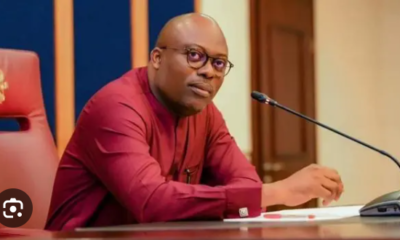
 News10 months ago
News10 months agoHURIWA Declares Governor Fubara’s Emergence as Divine, Urges Support for Rivers State’s Progress
-
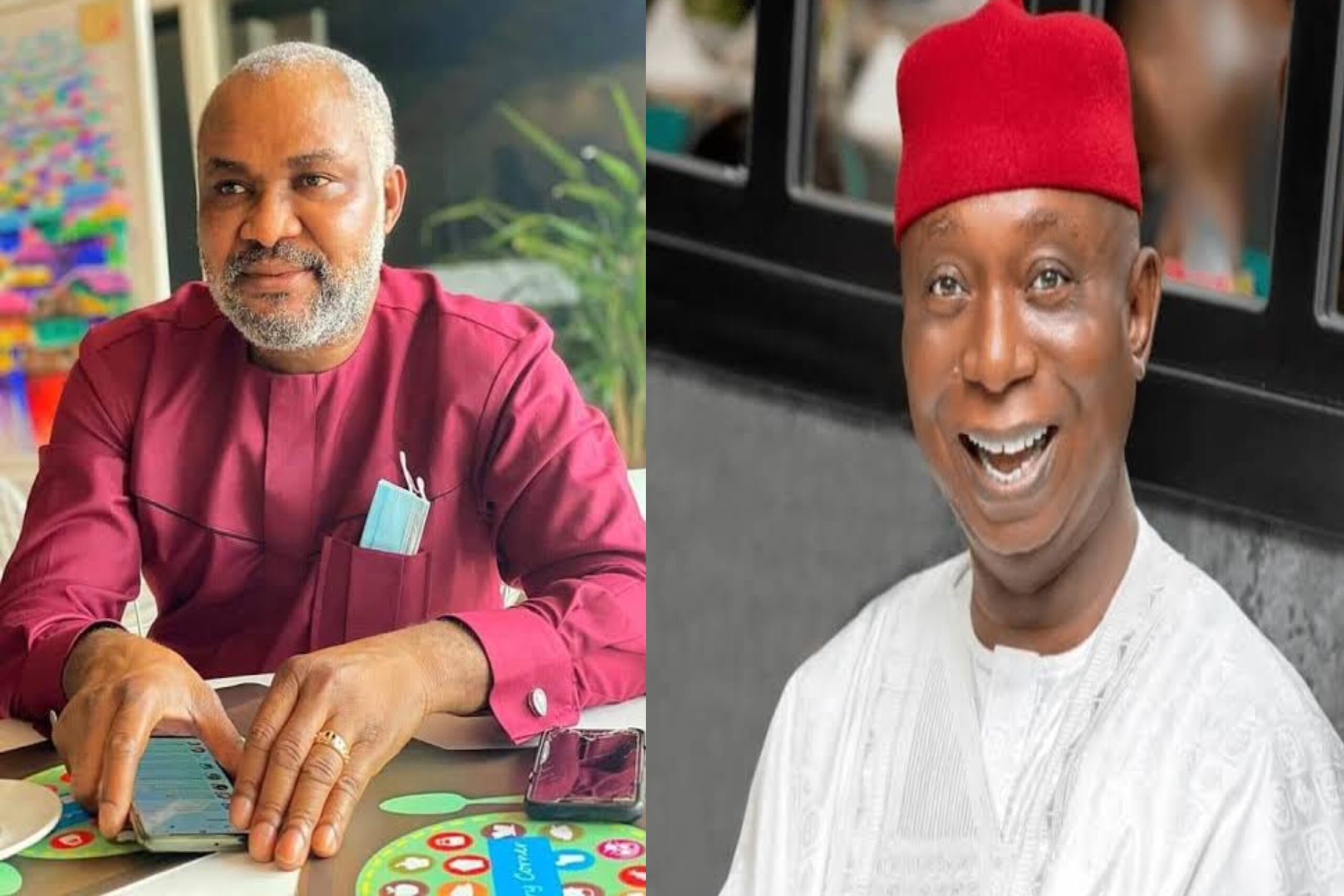
 News10 months ago
News10 months agoAnioma State as panacea to South-East marginalization – By Emmanuel Onwubiko
-

 Opinion8 months ago
Opinion8 months agoNIGERIAN WOMAN IN DIASPORA, CULTURAL SHOCKS – By Stacey Ukaobasi Onwuegbuchulam
-
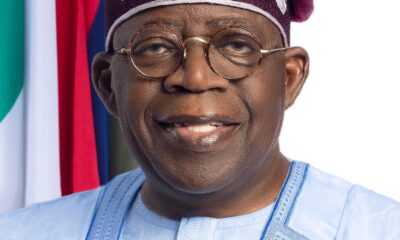
 News11 months ago
News11 months agoHURIWA Blames Serial Stampedes on Weaponized Poverty, Warns of Nigeria’s Rapid Decline
-
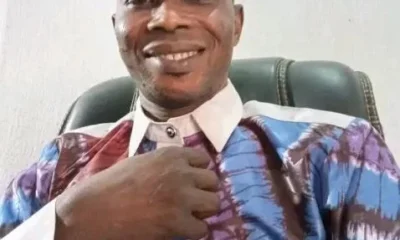
 News10 months ago
News10 months agoJealous Husband Stabs Nigerian Bishop To Death Over Suspicion Of Sleeping With Estranged Wife
-

 News10 months ago
News10 months agoTinubu sympathizes with ex-speaker Bankole on the death of his mother
-
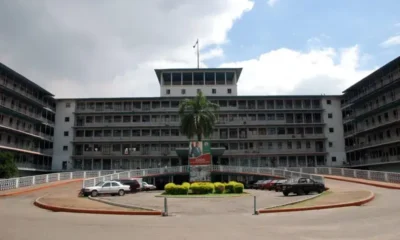
 Health8 months ago
Health8 months agoA complete list of 154 healthcare facilities across Nigeria that provide free emergency obstetric care and VVF (Vesico-Vaginal Fistula) surgeries.

